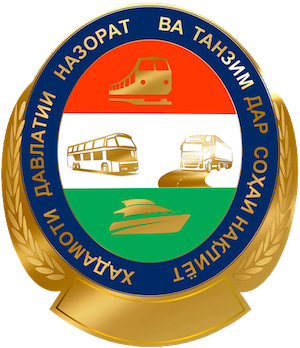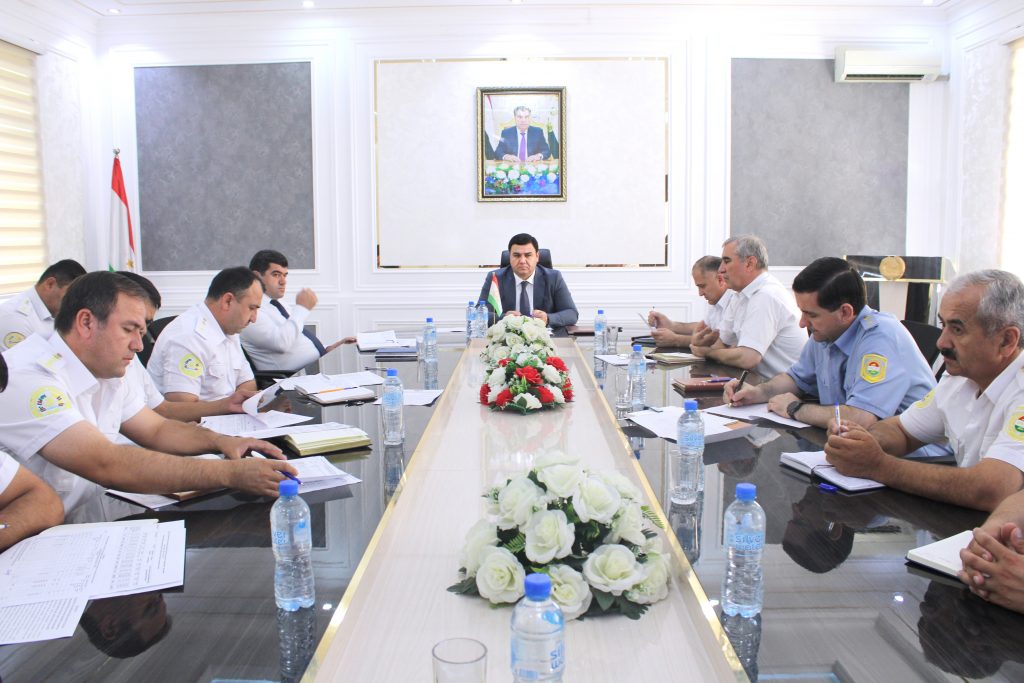On July 21, 2025, a meeting of the State Service on Control and Regulation in the Field of Transport was held on the topic “Review of the Main Provisions of the Law of the Republic of Tajikistan on Responsibility for the Education and Upbringing of Children.”
The meeting was attended by the management and employees of the central office and structural divisions of the Service.
In particular, it was emphasized that the Law of the Republic of Tajikistan “On Responsibility for the Education and Upbringing of Children” plays an effective role in the spiritual, cultural, and legal education of society, as well as in the formation of self-awareness and the level of education among adolescents and young people, which is a powerful force, support, and wealth for the state. This was done in order to minimize crime among young people and prevent any adverse events on the part of the Government of the Republic of Tajikistan. Education is essentially a team effort and a painstaking process, which is why the cooperation between all educational institutions and parents has been expanded under the requirements of this Law, and all government institutions have established close and effective cooperation with parents. The Law of the Republic of Tajikistan on Responsibility for the Education and Upbringing of Children is based on the Constitution of the Republic of Tajikistan and is justified in its articles.
In this regard, it should be noted that the main source of this initiative, which is the adoption of the Law of the Republic of Tajikistan “On the Benevolence of Parents in the Education and Upbringing of Children,” which was originally adopted under this name, is the current Constitution of the country. This law, which was adopted on August 2, 2011, and consists of 6 chapters and 17 articles, has already found its place in the legislative system of Tajikistan.
At the same time, he noted that the Parliament of Tajikistan, in order to further increase the responsibility of parents for the education and upbringing of their children, and to simplify and comprehensively regulate relations in the field of education and upbringing of children, adopted the Law of the Republic of Tajikistan “On Responsibility for the Education and Upbringing of Children” in a new edition on June 20, 2024, which consists of 7 chapters and 25 articles.
The new law doubles the responsibility of parents for the education and upbringing of their children. As the founder of peace and national unity, the Leader of the Nation, President of the Republic of Tajikistan, Honorable Emomali Rahmon, emphasized, “At all stages of education and upbringing, as well as moral and spiritual development, the primary responsibility lies with the parents. This is because parents are at the forefront of shaping their children’s thoughts, feelings, and worldview. Children see and experience the world through their parents’ eyes and hearts, and their attitudes towards the world are primarily influenced by their parents’ perspectives. In principle, the mind, perception, worldview, and spiritual virtue of parents are the first source that plays a constant role in a child’s consciousness, and its influence on a person’s life lasts a lifetime.”
In addition, in the upbringing and education of children, in the relationship between the three social institutions: family, school, and society, upbringing and education acquire a true spirit. Therefore, each of us, loving and respecting our people and our homeland, must value the values of our people and not be indifferent to the most important issue in life: the upbringing of children. We must raise them in the spirit of high national identity, patriotism, and pride in their homeland and Fatherland, and encourage them to focus on science and professionalism. After all, a child is kind, good-natured, knowledgeable, and contributes to the spiritual value of the state and its intellectual capital, determining the level and quality of society’s education and the strength of the state.
At the end of the meeting, relevant decisions were made based on the opinions and suggestions of the employees.

